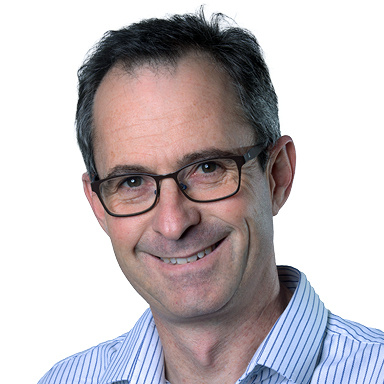Breast cancer survivor Liesl Basson’s path to recovery is an inspiration to anyone faced with this devastating diagnosis.
“I have no breast cancer in my family, so my diagnosis – ironically during Breast Cancer Awareness Month – came as a complete shock. I’d been for regular mammograms from the age of 40 and there were no alarm bells,” says mother of three, Liesl Basson.
“One evening as I lifted my arms to take off my top, my husband saw a strange-looking bit of skin underneath my right breast that had a dumpling-like texture. Later, while visiting my house doctor for other concerns, I asked her to look at the skin under my breast. She was slightly concerned and sent me for a mammogram. From there, everything went haywire.”
Malignant tumours
Just weeks after having discovered the skin abnormality and being diagnosed with breast cancer, Liesl was on the operating table. “I had three malignant tumours in my right breast, which instead of protruding outwards to create lumps, went inwards, which is why I didn’t feel anything during my routine self-examinations,” she explains.
“You can imagine my devastation on being diagnosed shortly after my 44th birthday. All I knew about cancer at the time was that people die. My main thought was that I didn’t want to die. It was overwhelming, I couldn’t think of leaving my husband and our three young boys.
“I remembered that I’d heard a cancer survivor speak at a tea held in our small Tulbagh community, and so I phoned her. Her words will stay with me for the rest of my life: ‘When I got my diagnosis 17 years ago, my children were still small and look at me now, I’m an ouma,” she said. ‘There was hope for me, there’s hope for you.’ I immediately decided to tackle this thing in the most positive way possible.”
Multidisciplinary care
Liesl remains thankful that she managed to get a spot with one of the top surgeons at Mediclinic Panorama, Dr Etienne Myburgh. “He has a full team of medical experts who work together, including an oncologist and a plastic surgeon,” she explains.
“Once they got my results, the whole team sat together and discussed my case. They all took so much care in deciding which treatment route to take. I was in the best hands. I never felt the need for a second opinion; they knew what they were doing, and they did it well.
“Within two weeks of being diagnosed, I had a double mastectomy based on the team’s recommendations, as well as an immediate reconstruction. In determining the need for chemotherapy, Dr Myburgh suggested I do a MammaPrint test that assesses the risk of a tumour metastasizing to other parts of the body. The results suggested that in my case, chemo wouldn’t be necessary. Rather, I went for 16 radiation sessions.
“In the past year, my ovaries were also removed to limit oestrogen production as my breast cancer was oestrogen driven. From the beginning I was also on hormone extraction medication, which my oncologist and I agreed to stop this year because my immediate risk of relapsing is so low. This was one of the best things to happen to me since this journey began, as the side-effects, including joint pain and weight gain, were horrible.
Community support
Liesl describes her initial eight-week recovery as a challenge made easier by support from her community in the Western Cape town of Tulbagh. “They were like one big family,” she says. “My friends and community members I didn’t even know well jumped in and created a meal schedule. My mother came to live with us temporarily to help with the children. We live in Paarl now but living in a small town when I faced my diagnosis and operation made such a difference. I was the first of my age group in Tulbagh to get cancer, so it was traumatic for everyone.”
But amid this turmoil, Liesl was still determined to give back. “I’m a very practical person so I also found strength in founding a non-profit organisation (NPO) with my oncologist to make what I call the Journey Bag. This is a soft, bright material bag in which you can put the cumbersome drainage pipes you’re connected to after a mastectomy and still move around easily. It was something good I could do in the face of this horrible situation. Showing a little love like that brings a lot of hope. There is always hope in every step of this journey, even if it’s in the smallest things that people do for you and the love that they show.”
Regular breast cancer screening could save your life. Speak to your GP about a referral to your nearest diagnostic centre.
Further publications on the topic
Doctors 1


